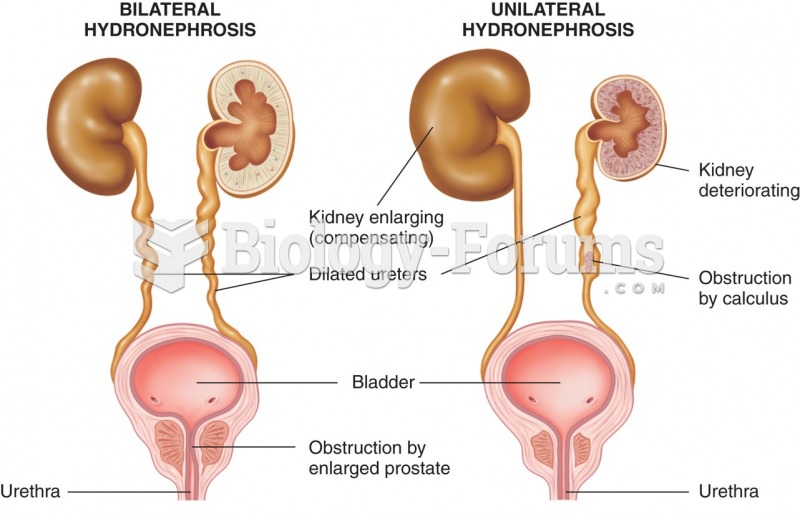|
|
|
Asthma-like symptoms were first recorded about 3,500 years ago in Egypt. The first manuscript specifically written about asthma was in the year 1190, describing a condition characterized by sudden breathlessness. The treatments listed in this manuscript include chicken soup, herbs, and sexual abstinence.
Your heart beats over 36 million times a year.
The Centers for Disease Control and Prevention has released reports detailing the deaths of infants (younger than 1 year of age) who died after being given cold and cough medications. This underscores the importance of educating parents that children younger than 2 years of age should never be given over-the-counter cold and cough medications without consulting their physicians.
Famous people who died from poisoning or drug overdose include, Adolf Hitler, Socrates, Juan Ponce de Leon, Marilyn Monroe, Judy Garland, and John Belushi.
Every 10 seconds, a person in the United States goes to the emergency room complaining of head pain. About 1.2 million visits are for acute migraine attacks.
 A cast of LB1 (left) was compared to several microcephalic skulls, amongst which is that of the micr
A cast of LB1 (left) was compared to several microcephalic skulls, amongst which is that of the micr
 Components of a long bone. The entire long bone is on the left side accompanied by a blowup of the p
Components of a long bone. The entire long bone is on the left side accompanied by a blowup of the p





